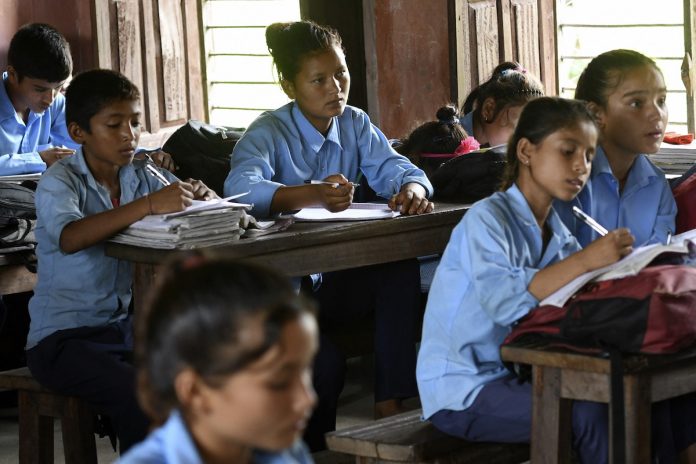Millions of children may go into early marriages in the coming years due to the prolonged coronavirus pandemic.
This was the warning made by a new analysis released by the United Nations International Children’s Emergency Fund (UNICEF) on March 8.
The global health crisis may result in about ten million additional child marriages before the end of the decade, threatening years of progress in reducing the practice.
The document titled “COVID-19: A threat to progress against child marriage” warns that school closures, economic stress, service disruptions, pregnancy, and parental deaths due to the pandemic are putting the most vulnerable girls at increased risk of child marriage.
Even before the COVID-19 outbreak, 100 million girls were reported to be at risk of child marriage in the next decade, despite significant reductions in several countries in recent years.
In the last ten years, the proportion of young women globally who were married as children had decreased by 15 percent, from nearly one in four to one in five, the equivalent of about 25 million marriages averted, said the report.
“COVID-19 has made an already difficult situation for millions of girls even worse,” said Henrietta Fore, UNICEF executive director, in a statement on the occasion of the International Women’s Day observance on March 8.
She said shuttered schools, isolation from friends and support networks, and rising poverty have “added fuel to a fire the world was already struggling to put out.”
“But we can and we must extinguish child marriage,” she said, adding that the observance of International Women’s Day “is a key moment to remind ourselves of what these girls have to lose if we do not act urgently.”
According to studies done by UNICEF and other organizations, girls who marry in childhood face immediate and lifelong consequences.
“They are more likely to experience domestic violence and less likely to remain in school,” said the UNICEF report.
It noted that child marriage increases the risk of early and unplanned pregnancy, in turn increasing the risk of maternal complications and mortality.
“The practice can also isolate girls from family and friends and exclude them from participating in their communities, taking a heavy toll on their mental health and well-being,” it added.
The UNICEF study noted that the pandemic is profoundly affecting the lives of girls, adding that pandemic-related travel restrictions and physical distancing make it difficult for girls to access the health care, social services and community support that protect them from child marriage, unwanted pregnancy and gender-based violence.
Worldwide, an estimated 650 million girls and women alive today were married in childhood, with about half of those occurring in Bangladesh, Brazil, Ethiopia, India and Nigeria.
To off-set the impacts of COVID-19 and end the practice by 2030 — the target set out in the Sustainable Development Goals — progress must be significantly accelerated, noted UNICEF.
“One year into the pandemic, immediate action is needed to mitigate the toll on girls and their families,” said Fore.
She said it can be done by reopening schools, implementing effective laws and policies, ensuring access to health and social services — including sexual and reproductive health services.









